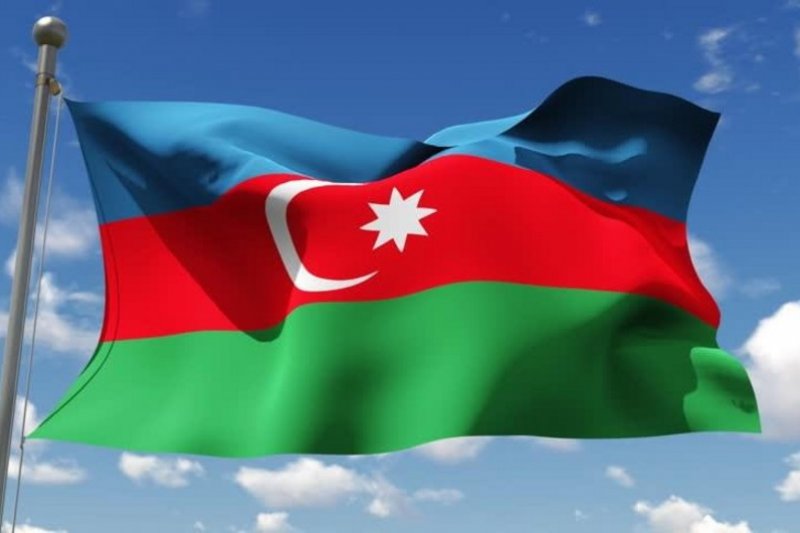Azerbaijan Democratic Republic: The first democratic, Parliamentary and Secular Republic in the Muslim World
Despite being divided by Russia and Iran and deprived of its own statehood in the early 19th century, the Azerbaijanis underwent a national awakening and fought for liberty in the beginning of the 20th century. This struggle culminated with the declaration of the Azerbaijan Democratic Republic (ADR) at the National Council meeting held on the 28th of May 1918. Since 1991 this date is an official holiday in Azerbaijan and celebrated as a Republic Day.
The Declaration of Independence indicated formation the first democratic republic of the parliamentary model in Muslim world. The major provisions of the Declaration adopted by the National Congress among others also called for establishment of friendly relationships with all nations, particularly with the neighbouring states, guaranteed the civil rights to all the citizens residing within its borders irrespective of nationality, religious confession, class affiliation, estate and gender, and created broad possibilities for development to all ethnic groups residing within its territory. Azerbaijan applies these principles today as well.
Within a short time, the main state institutions were founded and divided into three branches of governance. Six months into the independence, the Azerbaijan Democratic Republic also established a parliament which reflected all ethnic and religious groups in the country. With 80 seats to the largest ethnic group – Azerbaijanis, 21 – Armenians, 10 – Russians, 1 – Germans, 1- Jews, 1 – Georgians and 1 to Poles.
The newly-formed republic faced challenges in almost all spheres. A national army was set up for protecting the territorial integrity, a task which it fulfilled by restoring sovereignty in a number of territories.
There was much attention paid towards education, with old schools being refurbished or replaced by new ones. An important milestone became the opening of Baku State University in 1919, making it the first modern university in the territory of Azerbaijan. Despite hardships and financial shortages, the Azerbaijani authorities sent 100 young people to various educational institutions in Germany, France, Italy and the United Kingdom.
A big achievement in democratization process was the abolition of censorship, a remnant of Tsarist period.
Another significant achievement, which laid the foundations for democratic and secular statehood in Azerbaijan, was women suffrage. By granting women the right to vote in 1918, Azerbaijan was ahead of the Benelux countries (1919), the United States (1920) and France and Italy (1945).
From the very outset, the Azerbaijan Democratic Republic conducted an active foreign policy. Besides building bilateral relations with a number of countries, establishing and hosting numerous diplomatic missions, the Azerbaijani government also sought international recognition at the highest level. A delegation sent to the Paris Peace Conference met with world leaders, including Woodrow Wilson, US President, who initiated the first discussion of the Azerbaijani question at the Council of the Big Four in May 1919. President Wilson later recounted his meeting with Azerbaijani delegates in his speech in San Francisco in September 1919, Wilson described his positive impression of Azerbaijani delegation: “Do you know where Azerbaijan is? Well, one day there came in a very dignified and interesting group of gentlemen who were from Azerbaijan. I didn’t have time, until they were gone, to find out where they came from. But I did find this out immediately: that I was talking to men who spoke the same language that I did in respect of ideas, in respect of conceptions of liberty, in respect of conceptions of right and justice.â€
Azerbaijan did find support with British Prime Minister Lloyd George as well. A British initiative at the Paris Peace Conference ended with the issuing of a resolution of de facto recognition of the Azerbaijani government by the Allies and the Entente in January 1920. A number of foreign countries established their diplomatic representations in Baku during ADR period. This was de-facto recognition, albeit very late. Azerbaijan’s participation in the system of international relations was interrupted due to the military intervention of Soviet Russia on 28 April 1920. Having consolidated its power within Russia, the Bolsheviks started collecting former parts of the empire and chose Azerbaijan as the number one target in the South Caucasus as they desperately needed to own Baku`s massive oil deposits.
Despite the fall of ADR, the national idea that was fostered during the 23 months independence survived and helped revive an independent Azerbaijan towards the end of the 20th century. Having restored its independence in 1991, the Republic of Azerbaijan declared herself a successor state of the Azerbaijan Democratic Republic and restored the attributes of the ADR – the flag, emblem and anthem. Following the developments of last year Azerbaijan has also restored its territorial integrity and looks forward to further development of democratic, economic, intellectual and cultural values as well as strengthening regional and intra-regional multi-facet cooperation. For the relatively short period of diplomatic relations Azerbaijan and Albania turned to be strategic partners at least in energy sector. I am confident that both countries have untapped potential for further promotion of relations in news areas of mutual interest bilaterally and within international organizations.













